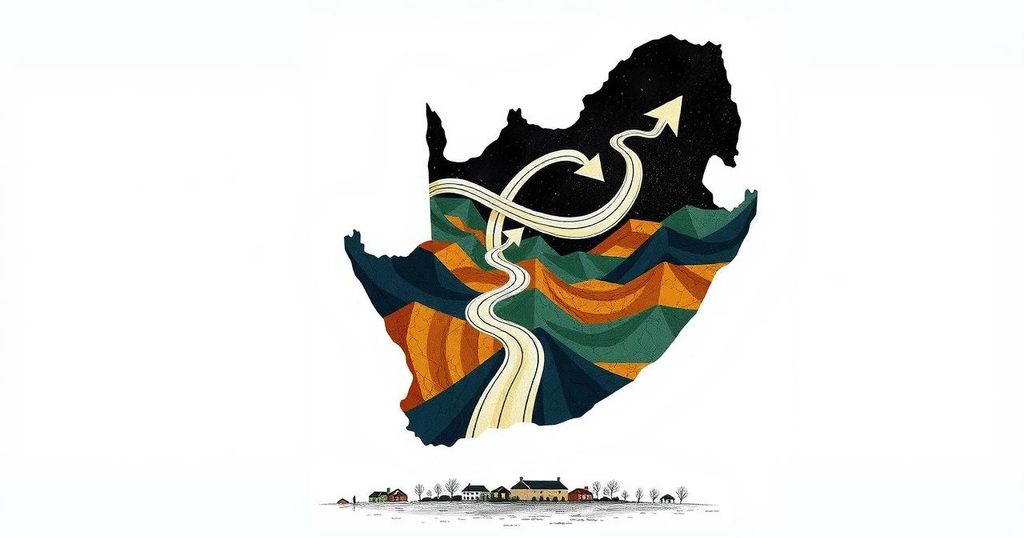The Democratic Alliance is challenging a new land expropriation law in South Africa, claiming it is unconstitutional. The law allows for expropriation without compensation, igniting international controversy, particularly from former President Donald Trump. Fears of economic destabilization reminiscent of Zimbabwe’s crisis persist, while the South African government rejects claims of unfair practices, insisting that expropriation will only occur in exceptional cases.
The Democratic Alliance (DA), South Africa’s second-largest political party, has initiated a legal challenge against a newly established land expropriation act, asserting that it is unconstitutional. Enacted by President Cyril Ramaphosa last month, the law permits the government to carry out expropriations with nil compensation if deemed necessary for public welfare. This legislation has ignited considerable controversy on both national and international fronts.
Former U.S. President Donald Trump has publicly criticized the act, alleging that it facilitates land confiscation from white farmers. In a drastic response, he reportedly ordered a halt to financial aid directed towards South Africa. The issue of land ownership remains critically sensitive in the country, with white South Africans maintaining control over substantial agricultural land even after apartheid’s end.
The DA described the new legislation as “vague and contradictory,” contending it violates constitutional rights and lacks legal clarity. This law aims to replace a 1975 regulation from the apartheid era, aligning land policies with contemporary constitutional values. Nonetheless, parallels are drawn with Zimbabwe’s land crisis in the early 2000s, where agricultural upheaval triggered economic destabilization due to land dispossession without compensation.
In response to Trump’s assertions, the South African government condemned what it characterized as a “campaign of misinformation.” Officials have reiterated that the policy of expropriation without compensation will only be applied in exceptional and justifiable circumstances, underscoring their commitment to lawful and equitable land reform.
The ongoing debate regarding the land expropriation act in South Africa highlights the tensions surrounding land ownership in the post-apartheid era. The DA’s legal challenge illustrates the complexities of reforming land policies while addressing historical injustices. Trump’s intervention has further complicated the matter, with South African officials maintaining that their approach will prioritize justifiable circumstances for expropriation. Ultimately, this issue remains a significant aspect of South Africa’s socio-political landscape.
Original Source: globalsouthworld.com






